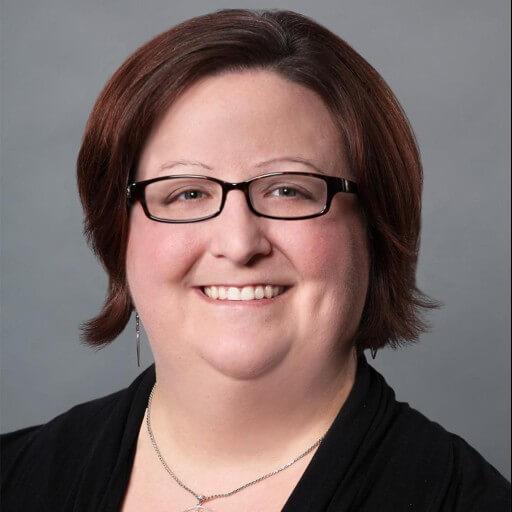$2.8 billion Blue Cross Blue Shield settlement: What providers can expect
Medical providers who treated Blue Cross Blue Shield patients may be eligible for compensation from a groundbreaking $2.8B antitrust settlement.

Most Popular
At a Glance
- Blue Cross Blue Shield (BCBS) is facing a landmark $2.8 billion antitrust settlement for allegedly using exclusive service areas to fix prices and underpay healthcare providers through their BlueCard Program.
- Medical doctors licensed after 2009 who provided in- or out-of-network services to commercial BCBS patients between July 2008 and October 2024 may be eligible to participate in this historic settlement.
- The settlement not only includes a substantial cash fund but also requires the 33 independent Blues to invest hundreds of millions in system improvements to address administrative inefficiencies and enhance provider interactions.
If you’re a medical doctor licensed after 2009 — and you provided in- or out-of-network services to patients with commercial Blue Cross Blue Shield (BCBS) coverage between July 2008 and October 2024 — you may have an opportunity to join the largest antitrust settlement in the history of the United States healthcare industry.
“It’s the vast majority of providers out there,” says Edith Kallas, co-lead counsel at Whatley Kallas, LLP, who represented providers in the 12-year long landmark case against all BCBS entities in the country as well as the Blue Cross and Blue Shield Association.
The settlement agreement (available here along with many other resources on the law firm’s website) spells out specifically what types of providers, including medical groups and facilities, are included and excluded. “Not every medical group or doctor is part of this case,” says Kallas. “However, keep in mind that you could have a medical group that has doctors who both precede and post-date the 2009 cut-off.”
Whether you're a provider, or a medical billing company who services them, let’s dive deeper into the allegations covered in the lawsuit and what providers can expect in terms of the settlement.
Allegations in the BCBS lawsuit settlement class action
The primary allegation against the Blues was that they allocated markets by using exclusive service areas to fix prices paid to providers through the BlueCard Program, a national program that allows members of one BCBS plan to obtain healthcare services while traveling or living in another BCBS plan’s service area, says Kallas. These anti-competitive practices resulted in underpayments to providers nationwide, she added.
“The primary allegation against the BCBS was that they allocated markets by using exclusive service areas to fix prices paid to providers through the BlueCard Program.”
As part of its investigation, Whatley Kallas and its co-counsel spent approximately $100 million to develop the largest collection of healthcare claims data in any case in history. Part of the money was also spent on hiring healthcare antitrust economists to evaluate that data and develop econometric models for the case.
In addition, the law firm assembled a work group of providers, including representation from large healthcare systems, teaching hospitals, rural hospitals, medical practices, ancillary providers, and medical and hospital associations that provided input throughout the process.
Outcomes of the BCBS lawsuit settlement class action
The settlement includes a $2.8 billion cash payment into a settlement fund. It also requires all 33 independent Blues to invest hundreds of millions of dollars in system improvements for the benefit of providers, including timely communication and payment, transparent decision-making and dealings with third parties, and timely claims status updates. The goal? Alleviate and address the resource-draining administrative burdens and inefficiencies that providers experience.
“What we tried to do is fix the BlueCard Program and enable additional contracting opportunities for providers out of area and establish a compliance process that keeps everything working like it’s supposed to,” says Kallas.
“What we tried to do is fix the BlueCard Program and enable additional contracting opportunities for providers out of area and establish a compliance process that keeps everything working like it’s supposed to.”
Optimize your revenue cycle workflow, increase insurance reimbursements, and reduce denials with Tebra's electronic claim submission tools.
What to expect next
The settlement and motion for preliminary approval are subject to a pending court order, at which point Kallas says providers will receive more information about timelines, completing claim forms, and more.
“There’s nothing people need to do right now except get educated,” says Kallas. “There are no deadlines yet.”
How much money might providers receive as a result of this settlement? While there is a plan of distribution based on each provider’s allowed amounts and other factors, the final dollar amount will depend largely on how many providers claim into the settlement, says Kallas. “The number of professionals who participate is going to matter a lot because anything that’s left over does not revert back to the Blues,” she says. “It goes to the class members.”
Kallas advises providers to monitor the Whatley Kallas website for up-to-date information on the court order finalizing the settlement and important deadlines to consider.
You Might Also Be Interested In
Crack the code for beating medical billing challenges with this free workbook — which provides tips around improving patient collections, streamlining claims submissions, and reducing rejections and denials.
Subscribe to The Intake:
A weekly check-up for your independent practice

Suggested for you
Get expert tips, guides, and valuable insights for your healthcare practice









